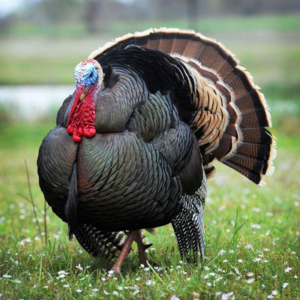Some meat-eaters just can’t fathom the thought of ingesting tofu. It’s understandable; the juicy, colorless soy substance doesn’t exactly look appetizing. … Know this while turkey contains about 114 calories in a 3-ounce roasted skinless serving, chicken clocks in at 131 calories and is 21 percent higher in cholesterol than tofu.
Working enough protein into your daily diet can prove difficult if you’re a vegetarian or if you’re just not a fan of cooking raw meat. Meat takes a long time to bake thoroughly, can taste bland if you forget to marinade or add spices and might stump you altogether if you’re not crafty in the kitchen. However, protein is an important part of our meals. The average man needs about 56 grams each day while the average woman needs about 46 grams. In this case, tofu and poultry, which includes a range of domesticated birds like chicken, turkey and duck, offers a hefty amount in just one serving.
If you’re thinking about going meatless or sticking to the real stuff, you might want to consider which offers the most vitamins and nutrients. While poultry offers more protein, tofu could win in other daily dietary requirements. And if you’re still stuck in your ways of soy versus meat, you may want to reconsider which section you’re purchasing each option from. Because while organic might take a little more out of your wallet, it may save you from ingesting unneeded additives. So, should you reach for tofu or fowl the next time you’re mixing up a delicious dish?
Tofu
This meatless option is a staple for vegetarians, and rightfully so. It boasts more fiber, calcium, iron, magnesium, zinc and folate than chicken and contains fewer calories, sitting at just 79 calories in a 3-ounce serving. Plus, this meat alternative offers these wonderful little things called isoflavones, which are compounds found in soy products known to give off antioxidant effects that stamp out free radicals and prevent premature aging. Beyond that, studies suggest regularly eating soy-based products can prevent breast cancer, osteoporosis and cardiovascular disease.
If diminishing your chances of developing cancer and other diseases hasn’t swayed your opinion, you might want to consider what else foods high in protein can offer. A study found that eating protein-rich food, like tofu, instead of those high in carbs or fat can make you feel fuller longer and may make it easier for you to stick to a reduced-calorie diet. Other studies show that regularly eating tofu can provide lower total cholesterol and triglyceride levels, so while you might need to eat more of it to equal the same amount of protein consumed by eating chicken (about 290 grams of tofu to 150 grams of lean meat), the anti-inflammatory agents and bone-strengthening benefits are higher than other protein options.
Ok, so now that you’re convinced from a nutritional standpoint, you might be thinking about how to prepare this strange substance. Try adding it to smoothies, soups, stir-fry and salads. To get the most flavor out of it, press out the water before marinating and if you do marinade, choose sauces that aren’t high in oil or soya, which can be high in salt and preservatives.
Poultry
Some meat-eaters just can’t fathom the thought of ingesting tofu. It’s understandable; the juicy, colorless soy substance doesn’t exactly look appetizing. Plus, its poultry alternative of chicken offers more protein, phosphorus, potassium, niacin and vitamin B6 in the same 3-ounce serving. But it falls short in terms of calories and cholesterol. While turkey contains about 114 calories in a 3-ounce roasted skinless serving, chicken clocks in at 131 calories and is 21 percent higher in cholesterol than tofu.
However, that niacin cited above? Well, just one large chicken breast will offer the recommended daily amount you need. This nutrient helps your body produce energy from all, yes all, of the foods you eat and regulates your nervous and digestive systems. Plus, if you’re trying to lose weight or gain lean muscle, chicken helps immensely since it’s low in saturated fat and carbs. It’s also an optimal source of omega-3 fatty acids, a nutrient you can only get through food which helps reduce inflammation and can potentially decrease the risk of heart disease, cancer and arthritis.
If you just can’t put off poultry, consider staying away from the farmed and water-filled breasts. One study found that organic chicken had 38 percent more omega-3 fatty acids than non-organic chicken, while another found that non-organic chicken feathers contained prescription drugs and arsenic. So while it may be slightly more expensive to go organic, it could reap benefits you’ll be thankful for in the future.
The winner
There’s a reason why vegetarians keep tofu on hand. It’s high in calcium, iron and a number of other vitamins and minerals, and it’s low in saturated fat and cholesterol—something chicken and other poultry options can’t say. While it might not contain as much protein as poultry, you can substitute in other options like Greek yogurt, cheese and eggs to jazz up your meals and pack in that much-needed nutrient your body needs. Keep in mind that typical soy and poultry contain GMOs, so whatever you choose, go for the organic variety. Because healthy really is the most delicious. That’s one thing vegetarians and meat-eaters can agree on.
 OR IS IT
OR IS IT 